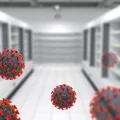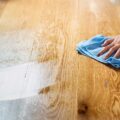Micro-organisms are a ubiquitous part of our environment. They are literally everywhere and have adapted to occupy every conceivable niche on the planet including both on and within our bodies.
Some micro-organisms are fundamentally crucial to our health such as those that occupy our intestines and actually assist with the digestion of our food or those that occupy the surface of our skin and just by their presence, prevent other less pleasant organisms from taking up residence instead. Such useful and helpful micro-organisms are known as ‘Commensal Organisms’.
Conversely, other micro-organisms have evolved and adapted to spread between us as far and as widely as possible and often causing illness in the process. Such harmful micro-organisms are known as ‘Pathogenic Organisms’. To adapt and survive as a successful pathogen, a micro-organism must perfect the ability to spread from one individual to another. The process by which pathogens spread, reproduce and infect others is known as ‘Contagion’.
As humans, our worst nightmare is to encounter a new, highly contagious virulent micro-organism to which we have no natural immunity. That is exactly what has happened with the CoVid 19 virus. It is highly contagious, highly infectious and highly virulent.
The video below illustrates how quickly and effectively a pathogenic micro-organism such as COVID-19 can spread from one person to another both by direct and indirect contact. It also firmly highlights the need for extreme vigilance, personal hygiene as well as effective cleaning and disinfection.
Watch the NHK Experiment
Watch how COVID-19 Spread Over a Single Sneeze to Multiple People
Watch How BR Shield can Help Reduce the Cross-Contamination & Disease Transmission in your Environment
Related Posts
- How Long do Coronaviruses Live on Surfaces?
- Steps to Clean and Disinfect Post Circuit Breaker
- Returning Hotel Rooms to Safety
- Coronavirus: Covid-19 bug can persist in air for hours and on surfaces for days, study shows
- Hong Kong scientists say new anti-viral coating can protect surfaces for 90 days




